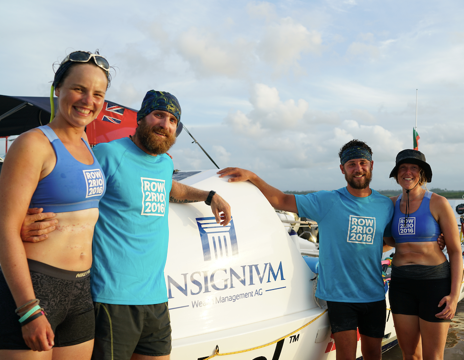David Lister has been banned from coaching for 18 months following an investigation into bullying and favouritism in crew selection at the prestigious Henley Rowing Club.
Five complaints against the former captain of Henley Rowing Club, David Lister were upheld by British Rowing.
This followed an investigation by the independent dispute resolution service, Sports Resolutions.
It agreed that Lister had:
- displayed favouritism to certain rowers to the detriment/exclusion of others;
- failed to maintain appropriate boundaries in his role as a coach with a junior rower;
- behaved in a derogatory, negative or inappropriate manner towards some rowers by making inappropriate comments;
- failed to adhere to safeguarding practices and to act upon advice given by the club’s welfare officer;
- failed to adhere to information sharing and confidentiality processes in accordance with British Rowing requirements.
Lister has now been disqualified from coaching children or vulnerable adults or acting as an officer of a British Rowing affiliated club for a period of 18 months.
Two further allegations of adopting unfair selection procedures and harsh and inappropriate training methods for junior rowers were dismissed. None of these complaints involved any issue of sexual involvement.
The investigation was launched last April by British Rowing following complaints of “inappropriate behaviour” by a coach towards junior girls at Henley Rowing Club.
Two other club officials, former president John Friend and club chairman Jeff Morgan were also accused of failing to deal with the allegations appropriately.
Following an investigation which ended last month, Friend was banned from the sport for a year. He and Morgan will have to undergo safeguarding training and will be mentored for at least six months until British Rowing’s case management group feel they are fit to return to the sport.
Lister’s ban will run from the initial date of the investigation, 15 April 2015, until 31 October 2016. He will then have to undergo safeguarding training and mentoring until British Rowing decides he can return to coaching. During the ban he will still be free to coach “non-vulnerable” adults.
Lister, Friend and Morgan all voluntarily stood down from their duties when the investigation began.
In a statement, British Rowing said it was “extremely disappointed” with Lister’s conduct “as safeguarding children is of paramount importance”.
“It is essential that acts which compromise the safety and welfare of children are prevented and that coaches, who have a responsibility to deal with child safeguarding concerns, do so in line with British Rowing guidance and adhere to the British Rowing Code of Conduct,” it said.
“British Rowing has taken the decision to make public this case because it is important to remind those within the sport that there is a very clear obligation for club officials to take responsibility for child safeguarding. The safety and welfare of a child must be the most important factor and should be reflected in the conduct of adults in contact with children at all times,” stressed British Rowing.
It says it is reassured that Henley Rowing Club has responded to the incidents responsibly by co-operating with the investigation and British Rowing.
Henley Rowing Club has acknowledged the findings of British Rowing and Sport Resolutions.
In a statement, it said it “fully and unequivocally supports” the message delivered by British Rowing concerning the paramount importance of child safeguarding.
“The Club has continued to co-operate fully with British Rowing and will abide by the recommendations that they have made. The Club itself implemented its own detailed review of all governance across the Club soon after the complaints came to light,” it said.
“We have undertaken a thorough and far-reaching review of our management processes, including safeguarding policies, and implemented further changes to ensure that we continue to enhance the running and operation of our Club wherever possible,” stated the club.
Henley Rowing Club, which stresses its “excellent record on child safeguarding” has been in existence for over 175 years. It was one of the first open rowing clubs to promote rowing for junior women.
“Our squad coaches, all of whom are volunteers, work tirelessly to provide a supportive environment to allow the athletes to develop at their own speed and to fulfil their potential. We constantly seek ways to improve our already high standards and remain committed to developing young rowing talent,” concludes the club’s statement.
Record breaking Row2Rio team land in Brazil
The Row2Rio team celebrated on 23 April as they landed in Brazil, having rowed 3,400 nautical miles across the Atlantic…
Video: British rowing team attempts to set record Atlantic crossing
Five friends -- four of whom are former British military -- have set off from mainland Europe for South America…





